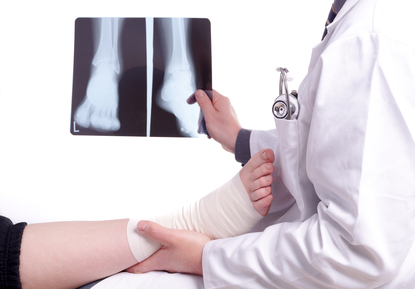One of the most confusing things about workers compensation is all of the different terms that get used. How can you even begin to understand what is going on and what you need to do if you do not have a good understanding of the terms being used? It can be overwhelming.
This article attempts to address that problem by providing basic explanations of some common workers compensation terms. I hope you find it helpful.
Adjuster
The adjuster is the person who handles your workers compensation claim for the insurance company. Adjusters generally decide what medical treatment will be approved and what checks you will receive in your workers compensation case.
 Approval/authorization
Approval/authorization
Medical treatment is one of the most important benefits provided by workers compensation. Unfortunately, most medical providers want the insurance company to approve or authorize treatment or testing before they will move forward with it. Overcoming the delay and denial of medical treatment is essential to recovering from a serious workers compensation injury.
Authorized treating physician
In Georgia, your primary treating workers compensation doctor is called your authorized treating physician. This doctor is very important to your recovery because the law grants this doctor a lot of authority over medical treatment and return to work decisions.
Average weekly wage (AWW)
Average weekly wage determined the amount that you will receive in weekly workers compensation checks (temporary total disability, temporary partial disability, and permanent partial disability). The Georgia Workers’ Compensation Act sets the correct methods for calculating average weekly wage. But, insurance companies often fail to pay the correct amount.
Catastrophic designation
Georgia’s workers compensation law has limits that affect how long you can receive benefits. Some serious injuries can qualify for a catastrophic designation. Qualifying for a catastrophic designation can remove some limits in your case and provide other benefits as well.
Controvert
Controvert is a fancy word for denial. The insurance company may controvert your whole case or some particular part of your case. The insurance company should file a Form WC-1 or Form WC-3 when they controvert.
EMG/NCS
This is a medical test ordered by a doctor. Doctors often order this test when they suspect that your injury caused some type of nerve damage. The doctor will use the test to try to diagnose your injury and recommend additional treatment.
 Free consultation
Free consultation
A free consultation is exactly what it sounds like. It is a free meeting with an attorney to discuss your case. Our law firm provides free consultations in workers compensation and veterans disability cases.
Functional Capacities Evaluation (FCE)
An FCE is often ordered to help determine what physical activities you can perform after an injury. Your doctor will normally order this testing when you reach or are approaching maximum medical improvement. The results of this test often have a tremendous effect on your case.
Hearing
A workers compensation hearing takes place with a workers compensation judge. Hearings are one of the ways that Georgia’s workers compensation system resolves disputes between you and the insurance company over what benefits you will receive.
Hearings involve the presentation of evidence by both sides followed by a determination by the judge. This article has more information about workers compensation hearings.
Light duty job
If your workers compensation doctor gives you work restrictions, your employer or the insurance company may try to offer you a light duty job. Providing a light duty job may allow the insurance company to avoid paying you certain types of workers compensation benefits. There are some specialized Georgia workers compensation rules you need to know when your employer or the insurance company offers you a light duty job.
Insurance company
The workers compensation insurance company is usually the company responsible for paying your workers compensation benefits. Your employer purchases workers compensation insurance just like you purchase other type of insurance (car insurance, health insurance). The adjuster usually works for the insurance company.
 Maximum medical improvement
Maximum medical improvement
Maximum medical improvement means you have recovered from your injury as much as the doctor expects with medical treatment. It does not necessarily mean that you do not need any more treatment. It just means that the doctor does not expect you to have significant improvement with additional treatment.
Mileage reimbursement
One of the benefits provided by Georgia’s workers compensation law is reimbursement for your mileage costs incurred to get medical treatment and testing. In other words, the insurance reimburses you by the mile for driving to your workers compensation medical providers and back. You or your attorney must submit the mileage to the insurance company to get you reimbursed, and there are deadlines for when it must be submitted.
MRI (Magnetic Resonance Imaging)
An MRI is a test that is often ordered when you suffer a serious injury at work. MRIs can help a doctor diagnose your injury and determine what treatment you need.
Nurse case manager
Insurance companies often hire nurse case managers to work on your case. Nurse case manager often meet with your workers compensation doctors and discuss your case.
Panel of physicians
Medical treatment is one of the most important benefits provide by Georgia workers compensation. The panel of physicians is a list of doctors that your employer is legally required to post. You actually have the right to choose a doctor off the panel of physicians to treat your injury. You can also change to a different doctor on the panel. If your employer did not properly post the panel of physicians, you may be able to choose any doctor you want to treat your injury.
Permanent partial disability
Some serious injuries never get one hundred percent better. If your injury causes some permanent impairment, your workers compensation doctor should assign a permanent partial disability rating when you recover as fully as possible (maximum medical improvement). This rating entitles you to receive permanent partial disability benefits from workers compensation.
 Second opinion/IME
Second opinion/IME
IME stands for independent medical examination. It is an examination by a doctor regarding your workers compensation injury. The doctor does not render treatment but instead just gives an opinion about your injury which is documented in an IME report. An IME may be scheduled by an insurance company with them picking the doctor or it may be scheduled by you or an attorney representing you.
Settlement
Settlement is one of the most complicated parts of a workers compensation case. There are many things you need to understand about settlement before exploring it, but there are a couple main things it is important to know.
- You never have to settle your case
- Settlement is final once it is approved by a workers compensation judge
Statute of limitations
Deadlines apply to your workers compensation case. Failing to meet these deadlines can cause you to lose your rights to all or part of your workers compensation benefits. Some of the most common and dangerous deadlines are statutes of limitations. There are several different workers compensation statutes of limitations that can prevent you from receiving the benefits you should.
Temporary partial disability (TPD)
Georgia workers compensation provides two different types of wage loss benefits. Temporary partial disability benefits is one of them. The insurance company should pay temporary partial disability benefits when you have earnings but they are reduced as a result of your injury at work.
Temporary total disability (TTD)
The other type of wage loss benefits is temporary total disability. You should receive temporary total disability benefits when your injury cases you to be out of work.
WC-2
A Form WC-2 is filed by the workers compensation insurance company when they start or stop the payment of weekly checks in your claim. The form indicates when checks are being started or stopped as well as the reason that the checks are being started or stopped. Unfortunately, insurance companies do not always file WC-2s. Even when they do, they do not necessarily fill them out correctly.
WC-104
The insurance company will often file a Form WC-104 when your workers compensation doctor says you can do some sort of restricted work. A WC-104 can do two things that hurt your case.
- Reduce the amount of your weekly workers compensation check
- Limit the number of weeks of weekly workers compensation checks you can receive
Willful misconduct
Willful misconduct which causes your injury can prevent you from receiving workers compensation benefits. The most common type of willful misconduct is intoxication by drugs or alcohol. Another common type of willful misconduct is violation of a safety rule.
 Approval/authorization
Approval/authorization Free consultation
Free consultation Maximum medical improvement
Maximum medical improvement Second opinion/IME
Second opinion/IME








